- Home
- Robert J. Crane
The Gang of Legend
The Gang of Legend Read online
THE GANG OF LEGEND
THE MIRA BRAND ADVENTURES
BOOK 7
Robert J. Crane
THE GANG OF LEGEND
THE MIRA BRAND ADVENTURES: BOOK 7
Robert J. Crane
Copyright © 2018 Ostiagard Press
All Rights Reserved.
1st Edition
This book is a work of fiction. Names, characters, places and incidents are products of the author’s imagination or are used fictitiously. Any resemblance to actual events or locales or persons, living or dead, is entirely coincidental.
The scanning, uploading and distribution of this book via the internet or any other means without the permission of the publisher is illegal and punishable by law. Please purchase only authorized electronic editions, and do not participate in or encourage electronic piracy of copyrighted materials. Your support of the author’s rights is appreciated.
No part of this publication may be reproduced in whole or in part without the written permission of the publisher. For information regarding permission, please email [email protected].
CONTENTS
1
2
3
4
5
6
7
8
9
10
11
12
13
14
15
16
17
18
19
20
21
22
23
24
25
26
27
28
29
30
Author’s Note
ACKNOWLEDGMENTS
Other Works by Robert J. Crane
1
Carson Yates
Akron, Ohio
Oh, geez.
Carson Yates sat in a waiting room, not unlike any other waiting room—faux leather chairs, arranged into two lines, a little beat up and mismatched (his was one of maybe ten very dark brown, whereas the rest, another six by his count, were closer to tan). Posters on the wall assaulted him from all angles. And now and again, a man or woman would pass by, and take a long look at him as he sat perched on the very edge of the seat, his head in his hands.
He watched the up-down tap of his feet, in shoes that were very well polished.
He was fairly sure he wasn’t in control of that up-down tap. He didn’t seem to be able to stop jittering at least, although his attempts to were rather poor, even he had to admit.
Oh, geez.
What was he even doing here? This was going to go wrong. Worse, it was going to be embarrassing. He wasn’t any good with people, for crying out loud. Hadn’t the last four months shown him that, with—
He closed the door on that thought by closing his eyes, running his fingers up underneath his glasses, and pinching the bridge of his nose. He didn’t want to think of it—not after how things ended.
In any case, he doubted very much that she was thinking of him right now.
He hadn’t the time to consider which she he was specifically referring to there, because a door opened from a room adjacent to this little waiting area, and a man in a sweater much like Carson’s own stepped out, royal blue where Carson’s was crimson, and a slightly untidy shirt collar sticking out.
“Carson Yates,” he said. He sounded kind of bored, though his voice did rise—just a little, but enough to make it sound like a question. Which didn’t seem exactly necessary to Carson, seeing as he was the only person sat in this waiting area.
He looked up, the nervous tremor of his feet reaching new heights. His palms had been sweaty, and his hair stuck up at an odd sort of angle where the sweat had glued it into place. His glasses were steamed too, from the heat, so the admissions officer looked down at him through a frosted sheen.
“Here,” Carson said. He stood up, fast—the chair clattered out behind him, shunted by the force of his straightened legs thumping into it—and he swung around, satchel flapping, clutching desperately for the seat before it upended. He was too late: it hit the floor on its back.
Heat rising in his cheeks, Carson snatched at the legs and pulled it back upright. It wasn’t heavy, but the satchel dangling off his shoulder made things somewhat more awkward than they needed to be. Nevertheless, up it came, and he pushed it back into its correct approximate alignment.
It all took less than five seconds. But Carson felt, as he stood there before the admissions officer, ten times more disheveled than he’d already been, with his sticking-up hair and sweat-soaked palms and misty-looking glasses.
The admissions officer just looked at him without much expression whatsoever.
Carson cleared his throat. “S-sorry.”
The admissions officer just said, “Through here.” Then he turned and went back into the room he’d come from, his puff of white hair receding.
A wild thought presented itself to Carson: Run. Just hightail it out of here and forget this whole lousy business.
The whole thing was doomed to fail anyway.
He followed the officer though, into a small office that was decorated in much the way offices were: with a desk, two seats on either side. A filing cabinet sat in the corner. A spider plant perched atop it. The long, leafy … leaves? … overspilled the top of the cabinet, hanging around the sides with fledgling plants growing at the ends of spindly runners. They must get in the way of the drawers constantly, if not for the fact it appeared as though the admissions officer had swept them aside in both directions like a pair of curtains, gaining access to the top of the cabinet through a few straggling runners.
The admissions officer had already taken his seat. He indicated the other to Carson without saying anything, then commenced pecking at a keyboard set before a monitor. Except for a phone and an in-out tray, empty, the desk was occupied only by a stack of paper sheaves, all done up with the university’s header, and held neatly in place by a pyramid-shaped paperweight, clear, with a green-blue tint to the bottom.
Carson lowered himself into the seat. Again, he considered just running. A quick apology—he was wasting this man’s time, after all, in fact the whole university’s—and he could be out of here and quit disappointing everyone.
He would be disappointed himself, of course, but that was better than the alternative. Miles better.
After a very long time—at least five minutes, Carson was sure, or was that just time turning to honey and oozing painfully slowly?—the admissions officer stopped navigating his computer. “Carson Yates,” he said again … and then lapsed into silence, reading the screen.
Must’ve pulled up Carson’s file.
A tickle in Carson’s throat threatened. He resisted clearing it, tried to swallow it down instead.
The tickle only got worse.
“You’ve taken some time out, I see,” the admissions officer said, turning to Carson for the first time. “Bit of a gap year?”
A pregnant pause. A second later, Carson jolted at the realization that he was probably supposed to answer that.
“Yes,” he said. “Traveling.”
“I see.”
No more—the admissions officer just turned back to the computer, pecked at the keyboard again—inputting this information, Carson supposed—and resumed reading.
Carson gripped the long handle of his satchel. The thing wasn’t giving a whole lot of comfort right now. It did, though, do a fine job of soaking up some of the hot slickness of his palms—geez, it was so warm in here. Didn’t this place have AC? Wait, no, yes it did—the hum of the unit, fighting off September heat, was a constant, unmissable drone, as was the unit protruding from the
ceiling. Despite the noise, it didn’t appear to be working; Carson couldn’t feel its breath on him at all.
He glanced to the admissions officer. Still reading. His lips moved, under a bushy white moustache. Judging by the movement of his eyes, he was reading Carson’s application, but doing it with the same painful slowness of that first minute or two in here.
Carson fought off a frown, glancing away, lest the man catch him staring and ask why—to which Carson would surely spill out his thoughts without stopping himself: “I was wondering just how old you are.” That and why he was in this position when there were surely much more efficient admissions officers available—ones who could read faster than a twenty-words-a-minute average pace.
He took the pause as opportunity to survey the room.
There were six posters on the walls in all, taking up most of the available space. Three of them were general university posters—young adults in the science labs, three of them positioned over a test tube, with lab coats and plastic glasses on, boasting about their chemistry department; then two for sports, one of which showed a quarterback barreling down a field with a football under his arm and two opposing players belting after him, the other depicting a spry Asian girl on the track.
Her. Now he knew which she he was thinking of. Carson reddened and looked out the window.
The sports fields were in view, actually. A long, wide expanse of green, split into sections by trees, they made for a very pretty view.
The fourth and fifth posters were healthcare guides—one for CPR, the other a rather new and glossy poster instructing on the usage of an EpiPen.
The last was an ancient thing with tattered corners: a kitten dangling off the branch of a tree, and the caption HANG IN THERE. Carson’s eyebrows rose at it: he hadn’t realized these things were actually real and out there, rather than some stupid background joke on TV or in film.
“Okay,” said the admissions officer finally—who still, Carson thought, hadn’t introduced himself. He clicked one last time on his computer mouse, and then at last turned to Carson, and laced his fingers together. He peered at him for a moment—not a penetrating stare as such, although Carson had the urge to wilt under it anyway—and then asked: “Tell me about yourself.”
Oh, geez …
What to say? For the four months spanning April and August, he’d been jollying off around a handful of areas around England, mostly London but other highlights included a carpark in north Kent. The trip hadn’t been for sightseeing exactly, at least not in this world. He’d almost gotten himself killed numerous times. But he’d also carved a spot for himself in the history books by discovering a city’s lost stores of treasure, which had made him rich enough to pay his college fees for the next four years outright probably a hundred times over, even after the coup-to-dollars exchange.
He was nervous and uneasy and not all too hot when it came to fights, but he could unravel the mysteries littered throughout old books, and puzzle his way through riddles that had baffled entire communities, spread through dozens if not hundreds of worlds, for centuries.
He had, once, been called the best of his tight-knit group of friends.
But then it had fallen apart. And the Carson he had been was reduced to a Carson he’d left America to put behind him: one who was frightened, and desperately alone.
So, now—what could he answer, exactly? What was there to tell the admissions officer? What, after all that?
Clearing his throat, he said uneasily, “I … I like to read. No specific genre. Uhm.” Another throat-clear. “And I like movies and comics.” He grappled for words, expression twisting with the pain of his mental gymnastics. He’d been about to reel off some of his favorites—but the look on the admission officer’s face was one of absolute boredom, and so Carson just fell into an uncomfortable quiet.
“Okay,” the admissions officer droned after the silence had reigned long enough to convince him Carson’s full character had been summed up by that cluster of classic nerd interests. Consulting his monitor again, he said, “What do you feel are your greatest weaknesses … and strengths?”
Carson balked, both at the pause—it was as though the admissions officer had added ‘and strengths’ only because it was required, yet he didn’t anticipate that Carson could adequately produce any—and likewise at the question.
Fire rose behind his cheeks, bringing his face halfway to matching the crimson of his sweater.
He should just leave. Then he’d have only wasted a little bit of this man’s time.
He opened his mouth, perhaps to force some answer he didn’t yet have, perhaps to just apologize and then scurry out of there—he wasn’t sure, didn’t think he would be until the words spilled out of him—
But before he could say a word, something happened.
The HANG IN THERE poster suddenly disappeared. A black oval engulfed the wall out of nowhere, six feet high and a couple of feet across at its widest. It produced no sound, though it did come with a distinctive, though faint, scent like gunpowder.
The admissions officer turned to it. His eyebrows, almost as bushy as his moustache, drew together, creasing his already lined forehead even more. “What in the—?”
Then, from the pitch-dark oval that was a gateway’s antipode came three people: a dark-skinned girl with black hair pulled tight to her head, in Indiana Jones-type gear, except for the jovial red and yellow umbrella hanging from her belt; a petite Asian girl, whose black hair was cut into perfect layers and cupped her jawline; then, finally, exiting with a rather forceful shove and crowding the room almost to the bursting, a snot-colored orc, almost as wide as he was tall, with battered armor covered in barbed spikes.
The admissions officer stared, mouth open under his bushy mustache, surprise bordering on horror writ across his wrinkled face.
Carson gaped.
The dark-skinned girl in front grinned at him, as though he didn’t look at all like he might faint.
“All right, Carson?” Mira Brand asked. “We’re putting the band back together. You in?”
2
Mira Brand
I’m going to be totally honest:
I thought Carson would look a little happier to see us than he did right then. A smile, maybe even a grin, or a hug—you know, something nice like that, something that said, I’ve missed you and I never should’ve left like I did, and also I forgive you for your mistakes before so don’t worry about actually saying the apology out loud.
Instead he looked at me like he’d seen a ghost. A mauled ghost, with its skull open and its brain throbbing, and its eyes dangling down onto its cheeks. A look of purest terror.
Nevertheless, I tried not to let it ruin my stride.
“All right, Carson?” I said, grinning brightly. “We’re putting the band back together. You in?”
He stared, utterly gobsmacked. His mouth hung open. A little touch of color had been in his cheeks as I stepped out of my gateway, but in the short time it had taken all of us to cram in here—and we were crammed; one wrong move by Carson or the Einstein-looking nerd opposite him, and they’d lose an eye on Bub’s armor—Carson had gone perfectly white.
“What is this?” the other guy said.
“Just chill,” I told him, glancing, then frowning. That sweater and shirt combo … “Carson,” I said, shocked. “Is this who you’ve been modelling your looks after all this time?”
Carson clamped his mouth tight, like he’d just remembered he had some degree of control over his jaw. Looking between us, me to Heidi (briefly) and then Bub, he swallowed, his Adam’s apple bobbing quite dramatically.
“What are you doing here?” he said in a strangled-sounding voice.
“I told you,” I said, and reached out to pick up the pyramid paperweight on the desk. “Getting the band back together. You’re in, right?”
His eyes bulged like I’d lost my mind. “Uh, no?”
I’d just been mid-toss of the paperweight, back and forth from hand to hand, one-obje
ct-juggling—something I evidently wasn’t very good at under duress, because Carson’s response caused me to miss the catch. The paperweight went clattering to the floor, where it cracked into two solid parts.
Einstein-lite cried, “My pyramid!” He jolted out of his desk to snatch it up, ducking under Bub’s barbed armor. Cradling the broken halves, he fixed an accusatory, hurt stare at me from the floor. “I got that from Egypt! It’s one of only 500—see?” He showed me the bottom, where an oval sticker now was all that held the two halves of the paperweight together. ‘42/500’, it said, the first number written in blue biro and the second printed in Arial.
“Sorry,” I said. “If it’s any consolation, it’s probably not worth anything. Who would even collect that sort of thing?”
“We’ll get you another one,” said Heidi gently, patting the man on the arm. We totally would not, but she was being appeasing.
He stared at her with eyes just as wide as Carson’s as she guided him up (carefully, again so as not to gouge his eyes out on Bub’s armor) and back into his seat. “What is the meaning of this?” he said. “How did you …?”
“Someone put something in the water,” Heidi said, nodding earnestly. “You’re just imagining this. Your job is crazy stressful this time of year, isn’t it? All these student admissions you’re fielding … it must really take it out of you. You’re due some time off, don’t you think?”
“Book a salon getaway,” Bub rumbled over Heidi’s shoulder. “You deserve it.”
The white-haired man just gawped at Bub in silence.
Heidi flashed him a sympathetic smile. “We’ll be out of here in no time,” she said. “Then you’ll … wake up.” She waved her hands in a mystifying sort of way.
“Did I hear you correctly?” I said to Carson. “You said no?”
“Of course I said no!”
Huh.
So, I’ll level with you: I hadn’t exactly anticipated that response either.

 The Girl in the Box Series, Books 1-3: Alone, Untouched and Soulless
The Girl in the Box Series, Books 1-3: Alone, Untouched and Soulless Alone: The Girl in the Box, Book 1
Alone: The Girl in the Box, Book 1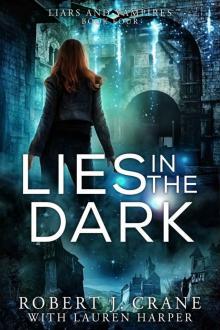 Lies in the Dark
Lies in the Dark Cold
Cold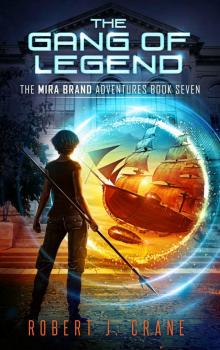 The Gang of Legend
The Gang of Legend Control: Out of the Box (The Girl in the Box Book 38)
Control: Out of the Box (The Girl in the Box Book 38) Someone Should Save Her
Someone Should Save Her Ghosts of Sanctuary
Ghosts of Sanctuary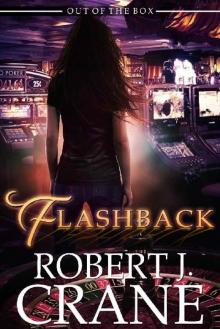 Flashback (Out of the Box Book 23)
Flashback (Out of the Box Book 23)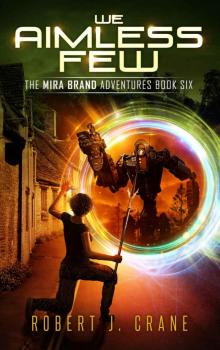 We Aimless Few
We Aimless Few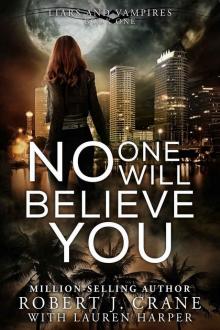 No One Will Believe You
No One Will Believe You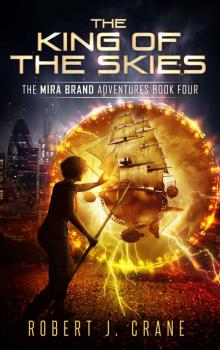 The King of the Skies
The King of the Skies Apex
Apex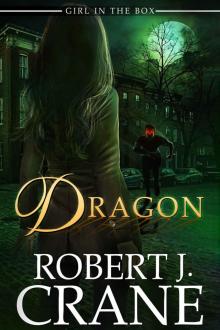 Dragon: Out of the Box (The Girl in the Box Book 37)
Dragon: Out of the Box (The Girl in the Box Book 37) Call of the Hero
Call of the Hero Blood Ties
Blood Ties A Home in the Hills
A Home in the Hills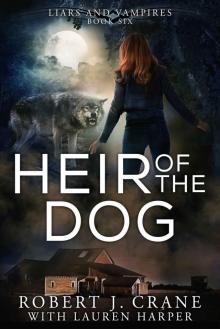 Heir of the Dog (Liars and Vampires Book 6)
Heir of the Dog (Liars and Vampires Book 6)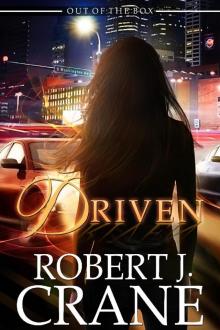 Driven
Driven Second Guess (The Girl in the Box Book 39)
Second Guess (The Girl in the Box Book 39)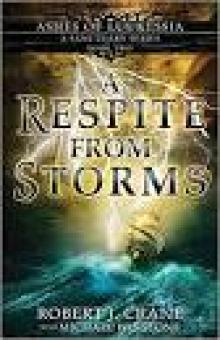 A Respite From Storms
A Respite From Storms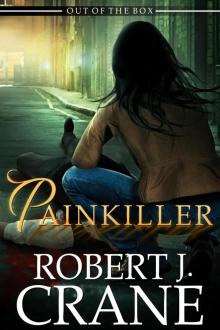 Painkiller
Painkiller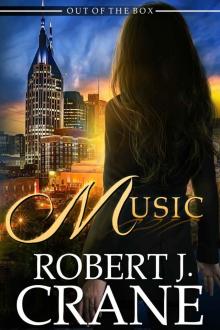 Music: Out of the Box 26 (The Girl in the Box Book 36)
Music: Out of the Box 26 (The Girl in the Box Book 36)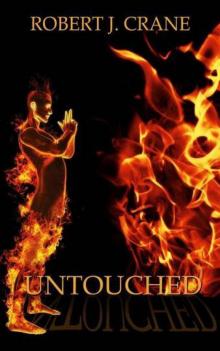 Untouched tgitb-2
Untouched tgitb-2 Unyielding (Out of the Box Book 11)
Unyielding (Out of the Box Book 11)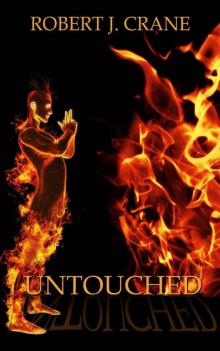 The Girl in the Box 02 - Untouched
The Girl in the Box 02 - Untouched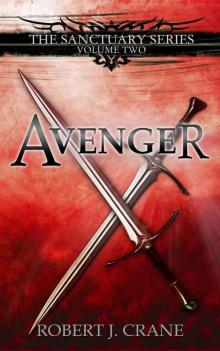 The Sanctuary Series: Volume 02 - Avenger
The Sanctuary Series: Volume 02 - Avenger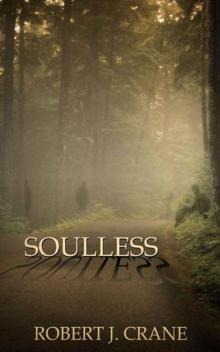 Soulless tgitb-3
Soulless tgitb-3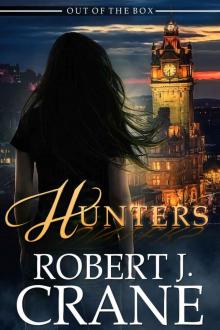 Hunters (Out of the Box Book 15)
Hunters (Out of the Box Book 15) Toxicity (Out of the Box Book 13)
Toxicity (Out of the Box Book 13)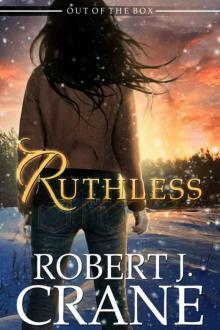 Ruthless (Out of the Box Book 3)
Ruthless (Out of the Box Book 3)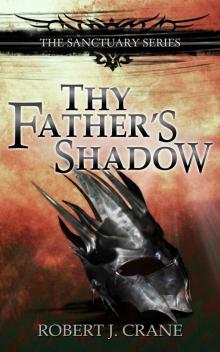 Thy Father's Shadow (Book 4.5)
Thy Father's Shadow (Book 4.5) Power
Power Alone tgitb-1
Alone tgitb-1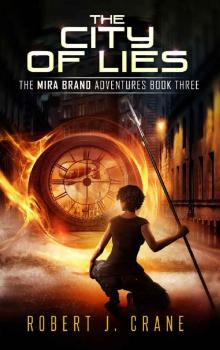 The City of Lies (The Mira Brand Adventures Book 3)
The City of Lies (The Mira Brand Adventures Book 3)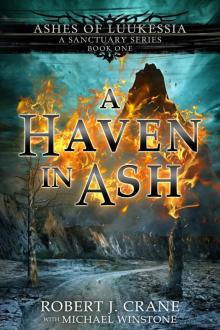 A Haven in Ash
A Haven in Ash Family
Family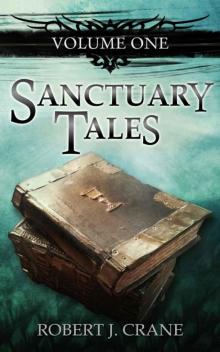 Sanctuary Tales (Book 1)
Sanctuary Tales (Book 1) Hero
Hero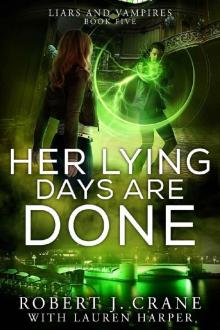 Her Lying Days Are Done
Her Lying Days Are Done![Crane, R [ Southern Watch 03] Corrupted Read online](http://i1.bookreadfree.com/i1/04/02/crane_r__southern_watch_03_corrupted_preview.jpg) Crane, R [ Southern Watch 03] Corrupted
Crane, R [ Southern Watch 03] Corrupted Tormented
Tormented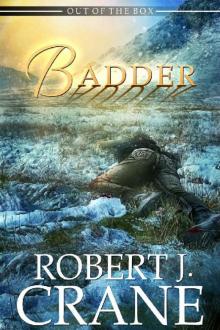 Badder (Out of the Box Book 16)
Badder (Out of the Box Book 16)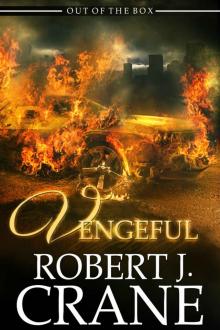 06 - Vengeful
06 - Vengeful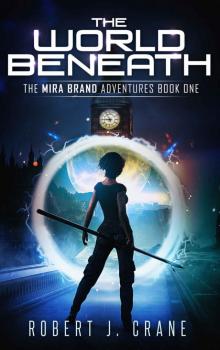 The World Beneath (The Mira Brand Adventures Book 1)
The World Beneath (The Mira Brand Adventures Book 1) Heretic (The Sanctuary Series Book 7)
Heretic (The Sanctuary Series Book 7)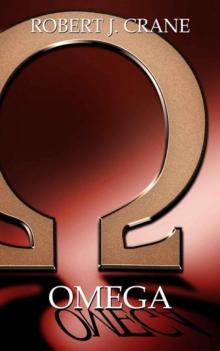 Omega tgitb-5
Omega tgitb-5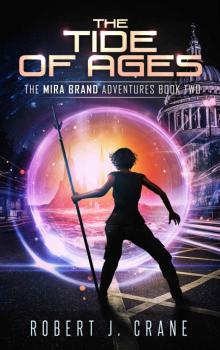 The Tide of Ages (The Mira Brand Adventures Book 2)
The Tide of Ages (The Mira Brand Adventures Book 2)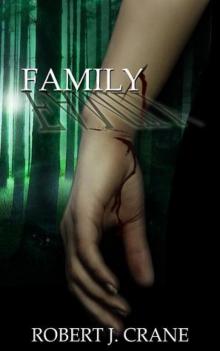 Family tgitb-4
Family tgitb-4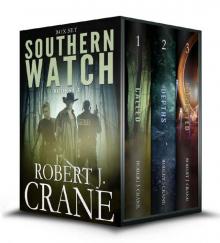 The Southern Watch Series, Books 1-3: Called, Depths and Corrupted
The Southern Watch Series, Books 1-3: Called, Depths and Corrupted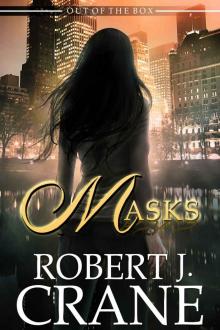 Masks (Out of the Box Book 9)
Masks (Out of the Box Book 9)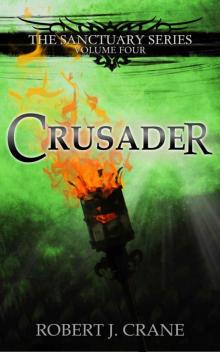 Crusader: The Sanctuary Series, Volume Four
Crusader: The Sanctuary Series, Volume Four Out of the Box 7 - Sea Change
Out of the Box 7 - Sea Change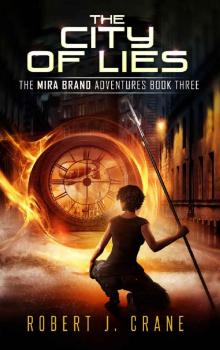 The City of Lies
The City of Lies Warlord
Warlord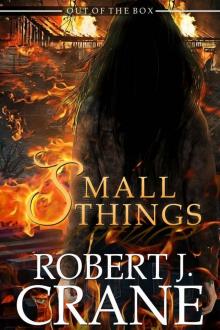 Small Things (Out of the Box Book 14)
Small Things (Out of the Box Book 14) The Sanctuary Series: Volume 03 - Champion
The Sanctuary Series: Volume 03 - Champion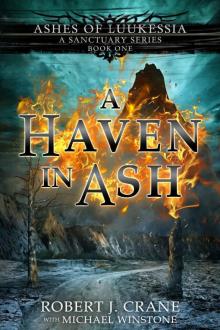 A Haven in Ash (A Sanctuary Series) (Ashes of Luukessia Book 1)
A Haven in Ash (A Sanctuary Series) (Ashes of Luukessia Book 1)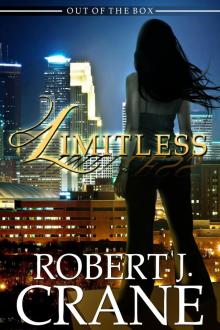 Limitless
Limitless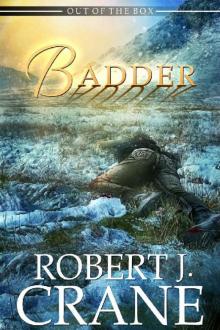 Badder
Badder Legend
Legend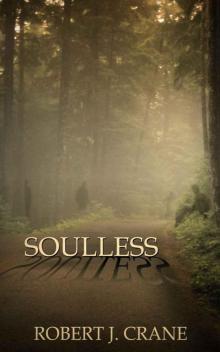 The Girl in the Box 03 - Soulless
The Girl in the Box 03 - Soulless Grounded (Out of the Box Book 4)
Grounded (Out of the Box Book 4) In the Wind (Out of the Box Book 2)
In the Wind (Out of the Box Book 2)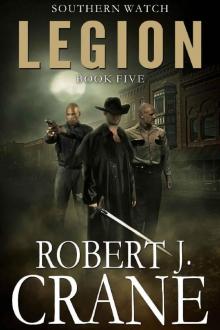 Legion (Southern Watch Book 5)
Legion (Southern Watch Book 5)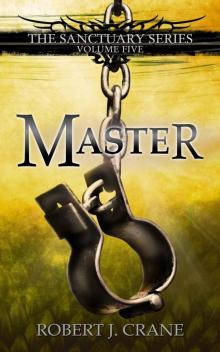 Master (Book 5)
Master (Book 5)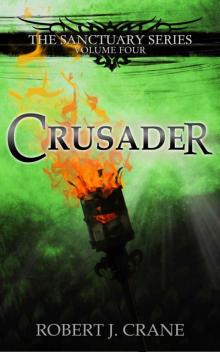 Crusader s-4
Crusader s-4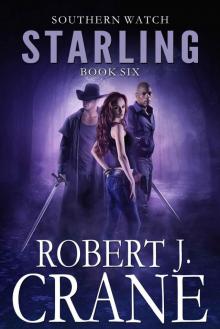 Starling (Southern Watch Book 6)
Starling (Southern Watch Book 6)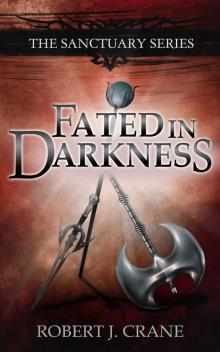 Sanctuary 5.5 - Fated in Darkness
Sanctuary 5.5 - Fated in Darkness